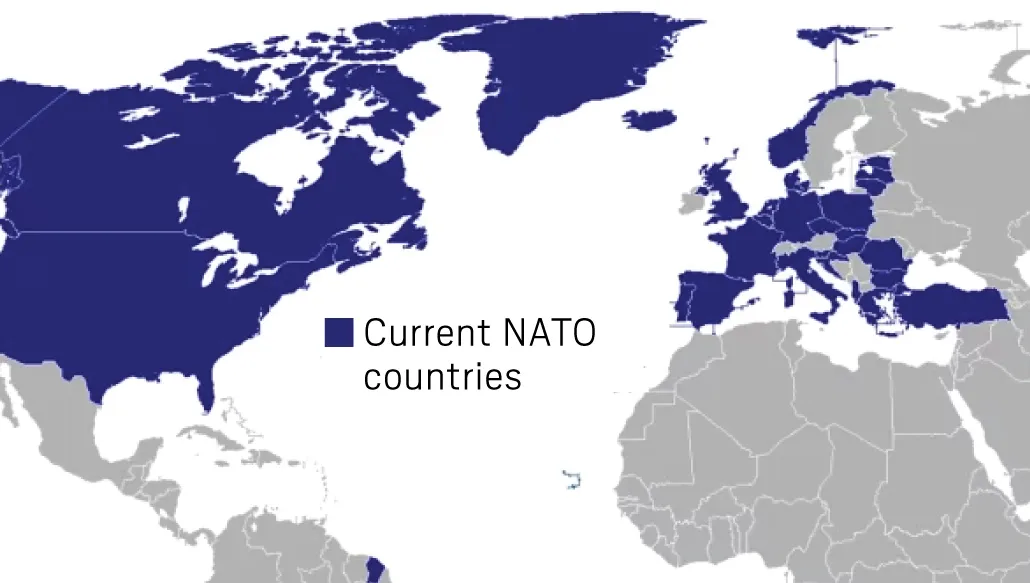Table of Contents
BICOM
BICOM provides accurate, timely and balanced information that is read by officials, experts, journalists and many others.
Gaza Strip: Following weeks of intense fighting, military officials said yesterday that IDF forces now have complete freedom of operation inside Gaza City.
- The neighbourhood of Jabalya has now been completely conquered, after around 1,000 combatants were killed and another 3,500 people were taken prisoner. Among the prisoners are around 500 suspected terrorists, some of whom participated in the October 7 massacre.
- The IDF noted, “since the beginning of the ground operation in the Gaza Strip, IDF troops have identified about 1,500 tunnel shafts and underground passages belonging to Hamas. Most of these subterranean structures have been found beneath schools, hospitals, mosques, UN facilities and civilian institutions.”
- Speaking on a tour of the Gaza border on Tuesday Defence Minister Gallant said, “in northern Gaza, operations are focused on completely purging the Gazan theatre and on-going underground, into the tunnels at enormous depths below ground.”
- In the southern Gaza Strip, Gallant said, “Khan Yunis has become the new capital of terrorism. We are operating there; the operation will cross stages and will continue until we achieve our objectives. We will get to every place we need. We won’t relent from this place. We will put the senior members of this murderous organisation where they deserve to be: either in the cemetery or in prison.”
Lebanon border: Fighting continued to intensify along the northern border yesterday.
- Air raid sirens were heard repeatedly throughout the day and several Hezbollah drones are thought to have crossed over Israeli airspace, which the IDF successfully intercepted.
- In one incident near Yiftah, the IDF intercepted six launches from southern Lebanon.
- In response, the Israeli Air Force continued to target Hezbollah cells responsible for attacks as well as Hezbollah infrastructure close to the border.
Context: In parallel to the fighting, renewed efforts to reach another deal to release more of the hostages continue.
- There remain an estimated 129 Israelis still held captive by Hamas and other groups inside Gaza.
- For the second time this week, as part of the pressure campaign, a new hostage video was released on Tuesday evening, this time by Palestinian Islamic Jihad. The recording is of two Israeli hostages: Gadi Mozes, 79, and Elad Katzir, 47, who were kidnapped from Kibbutz Nir Oz on October 7. Mozes’ wife, Efrat, was murdered that day. Katzir’s mother, Hannah was also kidnapped and was released last month. His father, Rami, was murdered.
- It is estimated that some of the hostages may still be held underground in northern Gaza, further complicating military operations. The IDF are cognisant of their failure last week that led to the accidental killing of three hostages. It has since been revealed that the soldiers that killed them were unaware of the improvised signs for help written in Hebrew found by other troops in the vicinity.
- Earlier this week, talks resumed between Mossad Director Barnea, CIA Director Burns and Qatari Prime Minister Al Thani in Poland.
- Israel is prioritising the release of the women who were meant to be released in the last round, and then men over the age of 60 and those who are ill or with serious injuries.
- In return, Israel is considering releasing Palestinian prisoners who were convicted of more serious acts of terrorism than in the previous deal.
- According to Barak Ravid in Walla, Israel is prepared to agree to a one week pause in the fighting in exchange for the release of 40 Israeli hostages.
- According to The Washington Post, as part of a hostage deal Israel would consider a two week ceasefire and would also gradually withdraw troops from northern Gaza.
- Last time, Israel was able to secure the release of 80 hostages in the same timeline, but the ‘price’ for releasing men is considered higher.
- Also on Tuesday, footage was released of the director of the Kamal Adwan hospital in Jabaliya being interviewed by Shin Bet investigators. As part of his interrogation, he revealed the duality of the hospital also serving as a base for Hamas to conduct operational activity. Among his revelations: 16 members of the hospital’s staff, including doctors and nurses also had roles in Hamas’s military wing. He also said that some of the hostages were held on site.
- The IDF also conducted a review of shooting in the area of the Latin Church in Shajaiya on Sunday in which two women were killed. According to the IDF, the review found that “Hamas terrorists launched a Rocket Propelled Grenade at IDF troops from the vicinity of the church. The troops then identified three people in the vicinity, operating as spotters for Hamas by guiding their attacks in the direction of the IDF troops. In response, our troops fired towards the spotters and hits were identified. While this incident occurred in the area where the two women were reportedly killed, the reports received do not match the conclusion of our initial review which found that the IDF troops were targeting spotters in enemy lookouts. We are continuing our examination of the incident.”
- They went on to note, “the IDF takes claims of strikes on sensitive sites very seriously, especially churches that are the holy sites for the Christian faith. The IDF directs its operations against the Hamas terrorist organisation and not against civilians, regardless of their religious affiliation. The IDF takes many measures to mitigate harm to civilians in the Gaza Strip. These efforts stand in contrast to Hamas that does everything in its power to endanger civilians and exploits them, as well as religious sites, as human shields for their terrorist activities.”
Looking ahead: Defence Minister Gallant confirmed that the “ground operation will be expanded to additional places.” There are several areas inside Gaza that the IDF has not yet entered including areas in central Gaza and Rafah in the south.
- Due to the sensitivity and close proximity to Egypt, the security cabinet is expected to discuss the nature of operations in Rafah and along the border. An operation to some extent will be necessary to prevent Hamas from replenishing arms through their smuggling routes in the future.
- As Israel contemplates extending the fighting in the south, there is an understanding that they need to keep some infrastructure in place. In order for some entity to eventually take over, the water supply, some municipal services, schools must be protected. It is also likely that the displaced civilian population will need to remain in temporary accommodation for some time, and so (learning the lessons of other conflicts, such as Iraq) some infrastructure must be kept in place.
- Foreign Minister David Cameron will travel to Jordan and Egypt this week to push for a sustainable ceasefire and further humanitarian pauses in Gaza.
BICOM Background Briefing: Operation Swords of Iron
BICOM published a comprehensive background briefing on Operation Swords of Iron, including background on Hamas, Israeli policy on Gaza, and Israel’s obligations under international law. Read the full briefing here.
PODCAST
Episode 223 | The Military and Diplomatic Timetables
In this episode, Richard Pater speaks to Shalom Lipner. Two months into the war, they discuss the military campaigns in the south and the north as well as the diplomatic front and Israel–US relations. They also speculate on the day after for the Palestinians and inside Israel. Shalom Lipner is a nonresident senior fellow for Middle East Programs at the Atlantic Council, and a former veteran of the Prime Minister’s Office in Jerusalem, serving seven consecutive Israeli prime ministers over 25 years.
Listen on Apple Podcasts, Spotify and Google Podcasts
ARTICLE
‘I had never witnessed such barbarism before’: Major ‘F’ and the Battle of Holit
Top stories from the UK and Israeli media
The Guardian suggests that differences between the White House and State Department lay behind the postponing of a UN Security Council draft resolution yesterday. “The UN draft resolution, drafted by the United Arab Emirates, had been changed on Tuesday in an effort to avoid a third US veto since the conflict began more than two months ago. Instead of calling for an ‘urgent and sustainable cessation of hostilities,’ the amended text referred to ‘the urgent suspension of hostilities to allow safe and unhindered humanitarian access, and for urgent steps towards a sustainable cessation of hostilities’. According to diplomatic sources, the US mission in New York believed it had negotiated a text that it could at least abstain on, but when Washington was consulted, new objections were raised, with the White House reportedly taking a more pro-Israel line than the state department.”
The Daily Mail reports that former UK Prime Minister Tony Blair is set to meet with Israeli Prime Minister Netanyahu to discuss the war, according to Andrew Mitchell, the minister for development and Africa, speaking in the Commons on Tuesday.
The Telegraph features a story saying that Israeli troops fighting in the Gaza Strip have been infected by drug-resistant pathogens. The infections have occurred mainly in limb injuries and include highly resistant bacterial strains of Klebsiella and Escherichia coli, and Aspergillus fungi. “In all hospitals it is reported that soldiers have returned from the battlefield with resistant infections,” said Prof Galia Rahav, Chairman of the AID. She added: “The contact with the soil and mud there causes exposure to such resistant bacteria, and also to mould.”
The Telegraph reports that President Biden is considering missile strikes against the Houthis in Yemen, after the Iran-backed group’s multiple acts of aggression against Israeli and US targets and international shipping in the Red Sea. “While some US military officials believe a direct strike against Houthi rebels is the only way to prevent the shutdown of the shipping lane,” it writes, “other Pentagon advisers are thought to have warned it would inflame tensions with Iran, which backs the Houthis as well as Hamas. Pentagon officials are also reportedly growing concerned about the cost of their defensive operation in the Red Sea.”
The Independent features the death of a 17-day-old baby girl in an air strike in the Gaza Strip.
The Financial Times reports Israel’s President Herzog telling foreign diplomats yesterday that “Israel is ready for another humanitarian pause and additional humanitarian aid [into Gaza] in order to enable the release of hostages.” Herzog said the responsibility for a new agreement “lies fully with [Hamas leader Yahya] Sinwar and the leadership of Hamas”.
An Independent editorial writes that “a breakthrough in the Israel-Hamas war is necessary for humanitarian and economic reasons.”
In The Times, Daniel Finkelstein relates to his own recent article in which, as a supporter of Israel, he made a number of concessions to the pro-Palestinian viewpoint. “I had hoped… that this article would prompt matching concessions by those campaigning for Palestinian rights. I have been disappointed… How can supporters of Palestinian rights fail to see that this stance, this complete failure to see Israel’s case, simply won’t do? Is no one willing to show the courage to acknowledge that there are two sides to this story?”
The Daily Mail reports yesterday’s anti-Israel protest in Washington DC, in which police arrested more than 60 protesters for storming into the historic Rotunda in the US Capitol.
The Daily Mail features an incident in which Israeli troops deliberately fired an artillery cannon over the head of a female soldier. Footage shows the young woman standing in front of the self-propelled howitzer as it fires off a round, sending her stumbling to the ground. “The incident… is severe and completely deviates from the IDF’s safety regulations,” an IDF spokesperson said. “An in-depth investigation into the matter will be held as soon as possible, and punishments will be in order. No one was hurt in the incident.”
The Express writes on tensions on Israel’s northern border. It quotes IDF spokesperson Lieutenant Colonel Jonathan Conricus saying “Hezbollah, who as everybody knows is a proxy of Iran, is dangerously dragging Lebanon into an unnecessary war that could have potentially devastating consequences for the state of Lebanon and for the people of Lebanon. And it is a war that I think neither Lebanon nor Israel deserves to be fighting.”
The Independent reports UK Home Secretary James Cleverly warning Christmas shoppers to remain vigilant amid concerns over potential terror attacks. “Police figures last month revealed that between October 7 and 25, following the Hamas attack on Israel, the anti-terror hotline received around 1,350 reports, more than twice the number of contacts compared to the same period last year.”
The Daily Mail profiles female members of Israel’s border guard unit who responded on October 7th. “We schooled the other units that day,” says one. “We knew it better than them and did our jobs faster. Maybe they were faster to get there but we did the job a lot better.”
The International Business Times reports that a hacker organisation, Gonjeshke Darande, has claimed a cyberattack that forced Iran to shut down 70 per cent of its gas stations. “While Israel has kept to its ‘ambiguity policy’, correspondents and personnel belonging to the Israeli Defence Forces (IDF) have strongly alluded to the cyberattack on the Iranian steel plant, being at the hands of Israel’s Military Intelligence’s Unit 8200. In statements written in Persian and English, the cyber-attackers explained: ‘This cyberattack comes in response to the aggression of the Islamic Republic and its proxies in the region.’”
Yediot Ahronot publishes a front page story “We Lost Contact with Hamami; The Mission: To Get Alon Back Home” which focuses on the six-year-old son of Colonel Asaf Hamami, Alon, who spent October 6 with his father on base to celebrate his birthday. On the morning of 7 October, as Asaf Hamami was killed fighting Hamas terrorists on Kibbutz Nirim and his body taken to Gaza, and as the base was under attack, the IDF managed to return his son Alon to his mother in Kiryat Ono.
In Haaretz, Amos Harel writes that the Israeli military plans to change the nature of Gaza warfare within a month, but Netanyahu may have other plans. “Among Israel’s political and military leadership, there is a growing understanding that the war in Gaza will be transitioning to its next stage over the course of the next month. Washington’s recommendation is that the change includes the establishment of a buffer zone on the Gaza border (and perhaps also between the enclave’s northern and southern halves), a reduction in some reserve forces and a switch to division-level forays into the enclave from the extensive, slow and destructive ground manoeuvres now being conducted by four divisions inside Gaza…However, there remains a major political obstacle to moving to the next stage, namely Prime Minister Benjamin Netanyahu’s fear that his coalition will collapse under pressure from an angry right wing.”
Maariv reports that in sifting through the intelligence material that was gathered in the Gaza Strip, officials came across a number of videos featuring senior Hamas commander, Mohammed Deif, walking with a limp in what indicates Deif’s medical condition is far better than Israeli officials believed it to be after repeated attempts on his life. “The fact that Deif is alive, functional and in relatively good physical shape—he is able to walk and function independently—completely contradicts the detailed Israeli intelligence assessments about his physical condition from recent years.”
An opinion piece in Israel Hayom calls for Netanyahu to announce his date of resignation. “The moment that Netanyahu concedes his future political survival and stops focusing on that while the war is underway, we will get a ‘cleaner’ and more authentic performance from him as leader in the difficult military and diplomatic war we are in the midst of and which still awaits us, a war that is probably far from over.” Nadav Shragai argues that “the moment he and we stop dealing with Netanyahu’s political survival, his positions will be judged on their own merits, not in light of the fact they are his views. Be that whether we are talking about justifiably opposing a Palestinian state that would be an existential threat, or be that whether we are talking about the ongoing settlement enterprise in Judea and Samaria, which is ever-so vital for and Zionism and security, or be it that we are talking about changes, which are also very necessary, to the judiciary. The idea will be separated—at long last—from the man. Today, they are all one and the same; [once he announces his intention to resign] the worldview and the positions will be at the centre, not Netanyahu. We will finally be able to judge things on their merits, not according to the individual and the benefit or harm they do to him.”
Haaretz publish an interview with British comedian David Baddiel. Until two months ago, he never wanted to talk about Israel. When he got up on stage, he spoke of his Jewish identity but never about the Jewish state. If he was shown an article about Israel, for him it may as well have been Argentina. He argued that when he speaks of antisemitism and people answer him “But what about Israel?” – that itself is an expression of antisemitism. In short, Baddiel wanted Israel to play no part in his story. Then came October 7.” Since then “Baddiel, 59, has been using his X (Twitter) account, which has some 900,000 followers, to protest what he views as the progressive left’s erasure of the pain and suffering endured by Israeli Jews that day. He highlights antisemitic reactions to the Hamas massacre, explaining why they are in fact antisemitic and not merely anti-Israel.”
Yediot Ahronot, Maariv and Israel Hayom report on an exchange between Chief of Staff Halevi and Minister Ben Gvir. It relates to an incident in which IDF soldiers who seized control of a mosque in Jenin and recited the “Hear O Israel” prayer over its loudspeaker system. In the course of the security cabinet meeting that was held on Monday, the chief of staff commented on the incident in the context of a broader briefing he gave to the ministers, and described it as “improper.” Ben Gvir interjected: “I want to know that the soldiers who said ‘Hear O Israel’ in the mosque are to be restored to active duty,” he demanded. “Had you taken them quietly aside, dealt with the issue quietly, at most given them a bit of a dressing down—admittedly, I don’t think that that is [the] right [thing to do]—but that would be understandable. But the moment you went public with this in the media and said you’d suspended the soldiers—that is certainly an issue for the security cabinet. That’s a question of policy, and you’re also deterring other soldiers. It would be terrible if they aren’t returned to service, terrible.” The chief of staff said to Ben Gvir: “You’re wrong. I’ll decide what is ethical and what isn’t ethical in the military. Don’t threaten me.” Prime Minister Netanyahu interceded at that point and ended the exchange, but things heated up once again after he stepped out of the room. During the meeting, the chief of staff also commented on the IDF’s efforts to either capture or kill Hamas leader in Gaza Yahya Sinwar, and told the security cabinet ministers: “The Americans killed the arch-terrorist Osama bin Laden only ten years after the September 11 terror attacks. The best people here are working on this. It’ll take far less [time].”
Commenting in Maariv, Ben Caspit writes that “the security cabinet is a threat to Israel’s security. Long meetings that last for hours on end and which are held exclusively in order to be able to leak material and quotes that might make headlines. That is what prompted the assault on the chief of staff and other high-ranking IDF officers with bared bayonets and the mud-slinging: the ministers’ pursuit of the next headline on Twitter, on websites and in the broadcast media.”
In similar vein in Israel Hayom, Yoav Limor bemoans “a world of opposites: A convicted serial criminal [Ben Gvir] who did not serve a single minute in the IDF and who has spent most of his adult life as a GSS [Shin Bet] person of interest and representing [as a lawyer] people who interfered with the security forces doing their jobs is now teaches ethics and security to a person who has dedicated his life to the security of this country [Halevi]. He has the gall to do so at a moment that might be the toughest one the country has ever experienced, a moment at which the future of the nation literally rests on the shoulders of the chief of staff, who was forced to take time to listen to the inanities that were levelled at him by the most embarrassing minister in the history of this country… Even more insulting is the knowledge that at the end of this war, and regardless of the outcome, Halevi is going to resign. He will take responsibility for the October 7 failure and will go home, whereas Ben Gvir will remain and will continue to undermine democracy and security.”
Recommended Reading
Israel’s critics must do more than just carp, Daniel Finkelstein, The Times
- “Supporters of Palestinian rights need to show they are realistic about the nature of Palestinian leadership and many of the states that surround Israel. In the rhetoric about “free Palestine” there seems to be no acknowledgement, not even a hint, that the leadership of the Palestinians has little commitment to freedom at all.” Read more
Hamas Sees Peace as Weakness, Ahmed Fouad Alkhatib, Wall Street Journal
- “How can Hamas claim to be a resistance group seeking the liberation of Palestinians when its Passover Massacre resulted in the occupation of the West Bank and its Oct. 7 attack will result in the full destruction and reoccupation of the Gaza Strip? Weakening Hamas begins with normalizing criticisms of its ideology, its violent agenda and its subjugation of the Palestinian people.”Read more
Addressing Israel’s post-war future: A call for removal of UNRWA, Albert D. Friedberg, Ynet
- “Addressing the extensive influence of UNRWA is not just strategic; it is imperative. The future security of Israel and the possibility of a lasting peace depend on decisively confronting and resolving this issue.” Read more









